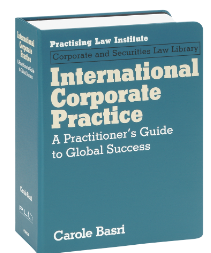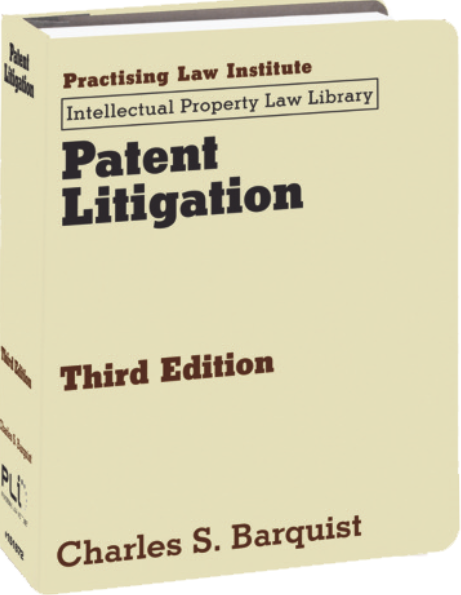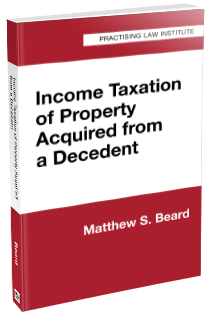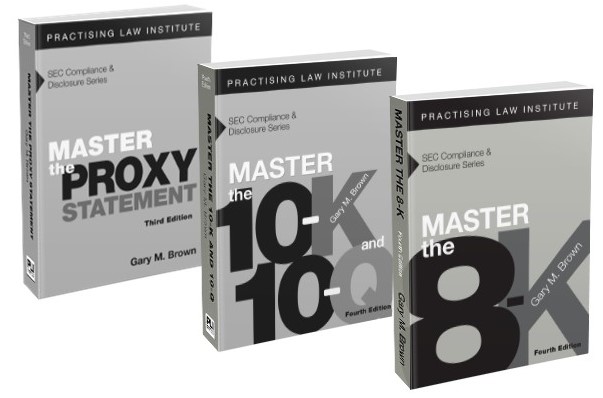PLI Press is proud to announce the publication of the new practice guide Income Taxation of Property Acquired from a Decedent.
Income Taxation of Property Acquired from a Decedent presents clear and comprehensive guidance on the favorable income tax rules related to property acquired from a decedent, such as the exclusion from gross income and the step-up in basis. By offering planning opportunities and strategies while also highlighting potential traps and discrepancies, the book helps readers navigate the complexities in the Internal Revenue Code to achieve favorable estate and income tax outcomes.
Notably, Income Taxation of Property Acquired from a Decedent covers the following important topics:
- Exclusion from Gross Income (Chapter 1)
- Basis, Character, and Holding Period (Chapter 2)
- Basis of Property Includible in Decedent’s Gross Estate (Chapter 3)
- Basis of Trust Property (Chapter 4)
- Basis of Entity Interests and Entity Property (Chapter 5)
In addition, this treatise gives guidance on estate planning (see Chapter 7) and addresses postmortem considerations (see Chapter 8).
We are excited to share this new title with you!
PLUS Subscribers can access this title with their subscription.
Order a print copy today.
Is your library interested in subscribing to PLI’s Standing Order Plan (SOP)? SOP subscribers automatically receive print copies of new titles to review upon release. If you decide to keep the title, you will receive a discount up to 25% off the title and all future supplements. Call 877.900.5291 or email libraryrelations@pli.edu to learn more.








